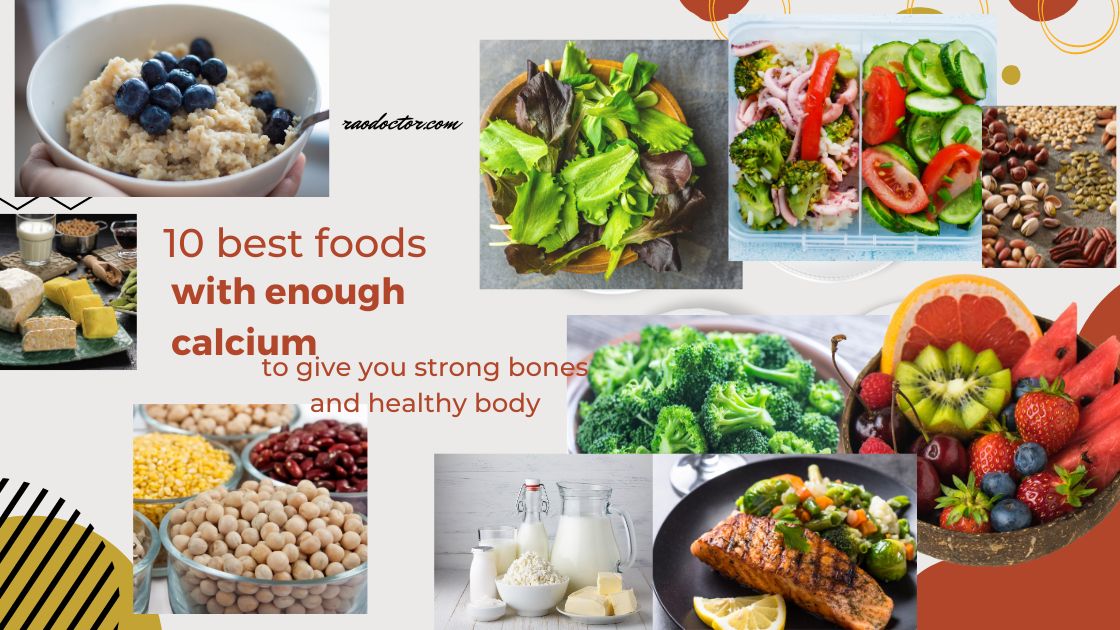Have these 10 calcium rich foods to get healthy bones and body
You may not get enough calcium from your diet every day, but that’s okay. It’s something you can easily supplement with. The idea behind writing this article is that we should strive to get calcium through our diet, because in the food we eat, we get other nutrients like proteins, fats, fibers, vitamins and carbohydrates as well.
Before we start, let’s learn about how much calcium we actually need to keep our bones healthy.

The daily calcium requirements vary depending on the age group of individuals as given below:
Infants from 0 to 6 months old require 200-260 mg of calcium per day.
Infants from 7 to 12 months old need 260-300 mg of calcium daily.
Children aged 1 to 3 years should consume 700 mg of calcium per day.
Children aged 4 to 8 years need 1,000 mg of calcium daily.
Adolescents aged 9 to 18 years require 1,300 mg of calcium per day.
Adults aged 19 to 50 years should consume 1,000 mg of calcium daily.
Adults aged 51 and older, including postmenopausal women, need 1,200 mg of calcium per day.
Pregnant and breastfeeding women have slightly higher calcium requirements, about 1000mg with an additional 200-300 mg per day.
Example:
- A 3-year-old child should consume around 700 mg of calcium daily. This can be achieved by consuming 2 cups of milk (600 mg) and incorporating other calcium-rich foods such as cheese or yogurt.
- An adult aged 35 should aim for a daily calcium intake of 1,000 mg. This can be achieved by consuming 3 servings of dairy products like milk, yogurt, or cheese, along with other calcium-rich foods like broccoli or almonds.
Like this, depending on your age, you can calculate how much calcium you need per day as well as how much you can get from any chosen food item from those discussed below. For example, if a food item contains say 30% of daily requirement, you can easily come to know how much calcium you will be getting if say, you consume 100 grams or a cup of that food item.
Why do you need calcium?
Calcium is a mineral that is essential for your body to build and maintain strong bones and teeth. It also helps maintain blood pressure, especially calcium derived from foods.
As we age, our bone health deteriorates because of conditions called osteoporosis or osteopenia.
Here is an article you may like to read how calcium can keep your bone healthy- Bone Health and Your Age
There are many foods that are rich in calcium and if you’re not sure how to incorporate them into your diet, this article will help you find the best sources of this important nutrient rather than using calcium supplements.
If at any time while reading this article, you need to know the exact amount of calcium in each food item, please click link no.3 at the bottom of this article or here-Calcium Content of Foods.
Some of the best food items that contain calcium in great quantity are:
1.Cereals & Oatmeal-
Oatmeal is not only rich in calcium, but also a good source of magnesium — another important mineral for bone health.
In fact, many experts believe that oatmeal is a better calcium source than milk and other dairy products, since the calcium in oats is more easily absorbed by the body.
One bowl of oatmeal contains about 38% of your daily recommended amount of calcium.

There are some calcium-fortified cereals that are good sources of calcium. One cup of calcium-fortified cornflakes contains 46% of your daily recommended amount of calcium.
One cup of calcium-fortified wheat flakes contains 50% of your daily recommended amount of calcium. One cup of calcium-fortified bran flakes contains 43% of your daily recommended amount of calcium. Other healthy cereals that contain a small amount of calcium include oats, rye, and barley. Oats, in particular, are a good source of calcium as well as iron and several B vitamins.
2. Beans and pulses
Beans and pulses, such as black beans and chickpeas, are fantastic sources of calcium. One cup of black beans contains a whopping 100% of your daily recommended amount of calcium.
One cup of cooked navy beans contains 89% of your daily recommended amount of calcium. One cup of boiled soybeans contains 13% of your daily recommended amount of calcium.
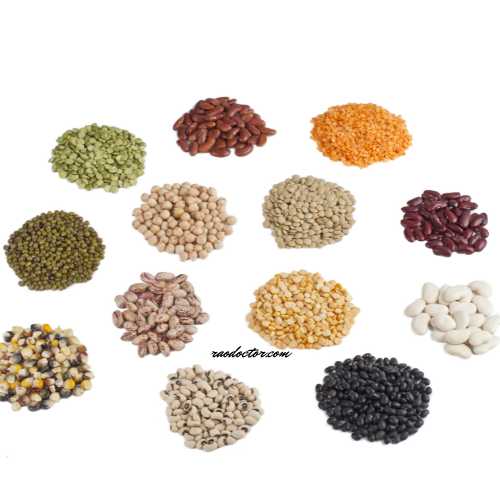
Other pulses, such as kidney beans and navy beans, are also great sources of calcium. One cup of navy beans contains 88% of your daily recommended amount of calcium.
If you don’t like the idea of consuming beans, there are also plenty of calcium-fortified foods such as cereal bars and non-dairy milks.
Just be aware that these products usually have less calcium per serving than what you would get from eating a bowl of beans or lentils.
3. Dark Leafy Greens
Green leafy vegetables: High in dietary fiber, green leafy vegetables are also one of the high calcium foods. With a number of options like spinach, kale, celery and broccoli, these veggies are also rich in potassium and magnesium.

Dark leafy greens, such as kale, spinach, and broccoli, are superfoods and rich in calcium. One cup of cooked kale contains 95% of your daily recommended amount of calcium.
Other greens, such as collard greens and Swiss chard, are also good sources of calcium. One cup of cooked Swiss chard contains 84% of your daily recommended amount of calcium.
In addition to calcium, dark leafy greens are also good sources of iron and vitamins A and C.
4. Other vegetables
There are many vegetables that are good sources of calcium. One cup of boiled broccoli contains 41% of your daily recommended amount of calcium.
One cup of boiled Chinese broccoli contains 50% of your daily recommended amount of calcium. One cup of boiled Chinese broccoli contains 50% of your daily recommended amount of calcium.
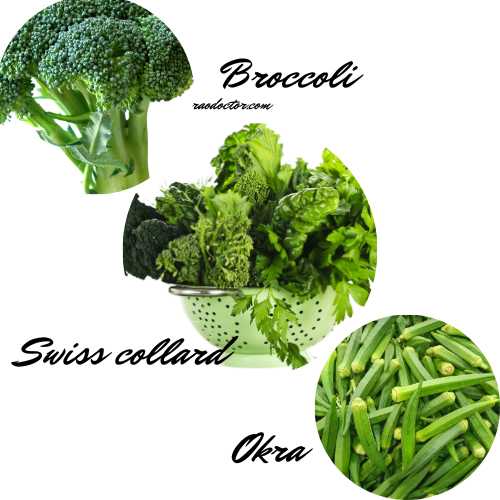
Okra, also called Lady’s Finger and bhendi in Hindi, is also a good source of calcium. One cup of boiled okra contains 9% of your daily recommended amount of calcium.
5. Fruits
Fruits are generally not considered to be good sources of calcium. However, one medium-sized orange contains 16% of your daily recommended amount of calcium. One medium-sized tangerine contains 7% of your daily recommended amount of calcium.
One cup of raspberries contains 8% of your daily recommended amount of calcium. If you’re looking for a calcium-rich diet, fruits are not really your best option. However, there are ways that you can still get calcium from fruits. For example, you can make a calcium-fortified smoothie with plenty of vitamin C-rich fruits like oranges and strawberries.
6. Seeds:
Seeds are tiny nutritional powerhouses, and many are high in calcium, including poppy, sesame, celery, and chia seeds.
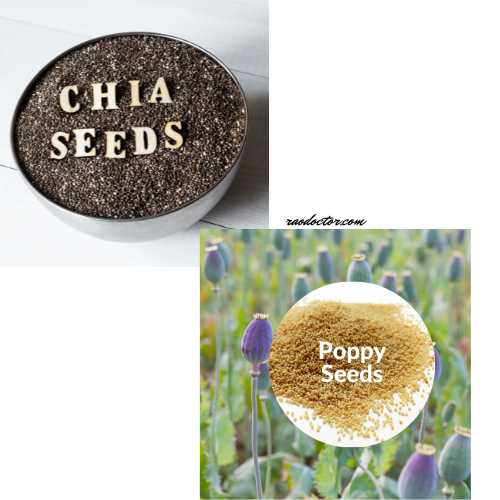
For instance, 1 tablespoon (9 grams) of poppy seeds packs 127 mg of calcium, or 10% of the DV3.
7. Tofu and Tempeh
Tofu and tempeh are made from soybeans, which are a good source of calcium. One cup of boiled soybeans contains 41% of your daily recommended amount of calcium.

Tofu: Tofu is a soy product that can be a great source of calcium for vegans and vegetarians. Half a cup (126 grams) of tofu prepared with calcium has 86% of the DV3 for calcium.
One cup of boiled tempeh contains 35% of your daily recommended amount of calcium.
8. Fish and bones
Salmon is a fantastic source of calcium, as well as vitamin D, which plays an important role in the body’s ability to absorb calcium. One 3.5 oz (100 g) salmon fillet contains 70% of your daily recommended amount of calcium3.

If you don’t like salmon, you can get plenty of calcium from other types of fish such as sardines and tuna. One 3.5 oz (100 g) serving of sardines or tuna contains about 30% of your daily recommended amount of calcium.
Apart from calcium, these fishes are also a source of Omega-3 fatty acids that are good for heart health.
Bone broth: Bone broth is made from bones, herbs, and vegetables that are slowly cooked for several hours. It’s a great source of calcium and other nutrients that support healthy bones and joints. One cup of bone broth contains 56% of your daily recommended amount of calcium.
9. Dairy products
Dairy products, such as yoghurt, milk, and cheese, are often thought of as calcium-rich foods.
Yogurt: Yogurt is not only high in calcium but also helps with digestion. One cup (245 grams) of plain yogurt contains 30% of the DV for calcium.
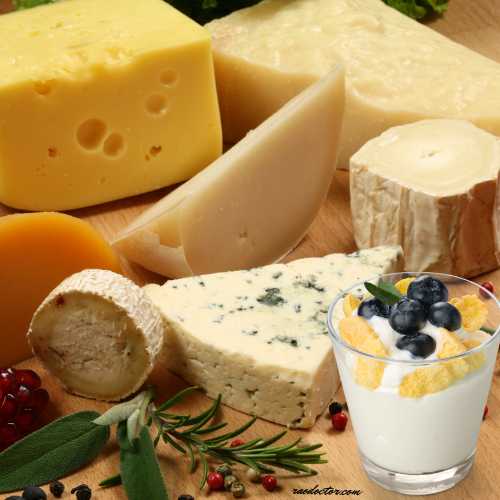
Cheese: Parmesan cheese has the most calcium, with 242 mg — or 19% of the DV — per ounce (28 grams). Other cheeses like cheddar, cottage cheese, and Brie are also good sources of calcium .
Although dairy products are often considered to be good sources of calcium, they are not the best sources of this nutrient. A one-cup serving of dairy only contains about 30% of your daily recommended amount of calcium.
10. Nuts
The concentration of calcium in various nuts can vary, with some nuts containing higher amounts of calcium than others. Some of the nuts containing sufficient amounts of calcium include-
- Almonds are a good source of calcium, with approximately 76 milligrams (mg) of calcium per 100 grams. For example, a serving of 28 grams of almonds would provide around 21 mg of calcium.
- Brazil nuts also contain calcium, although in smaller amounts compared to almonds. They provide approximately 63 mg of calcium per 100 grams.
- Pistachios are another nut that contains calcium, with around 135 mg of calcium per 100 grams.
- Walnuts and cashews are lower in calcium compared to almonds, with around 61 mg and 37 mg of calcium per 100 grams, respectively.
It’s important to note that the concentration of calcium in nuts can vary based on factors such as the variety of the nut, growing conditions, and processing methods.
Including a variety of nuts in your diet can help ensure you get a good amount of calcium from these sources, along with other important nutrients.
However, if you consume a variety of calcium-rich foods, you can get all the calcium you need for strong bones and teeth.
Vitamin D3 and Calcium relation
It should be noted that our body needs Vitamin D3 to help absorb calcium into our bones.
If you are living in sunny 🌞 or tropical countries, getting vitamin D is not a great problem.
Otherwise, in areas where sunlight is scarce, taking vitamin D supplements helps in absorption of calcium from the foods.
Conclusion
Calcium is a mineral that is essential for your body to build and maintain strong bones and teeth. You may not get enough calcium from your diet, but that’s okay. It’s something you can easily supplement with. Calcium-rich foods include dairy, beans, broccoli, and salmon. To get more calcium in your diet, try eating more of these 10 foods. They are rich in calcium and will help you maintain a healthy body.
Read this article to gain more information about Calcium supplements:-
- Top 15 Calcium-Rich Foods (Many Are Nondairy)
- Healthy foods high in Calcium
- Calcium Content of Foods
- Top 8 calcium-rich foods
- Which Foods Contain Calcium?
Final Words:
I hope that this article has provided you with good information on how to get calcium from natural sources- our daily food. If you have found it useful, do share it on social media by clicking the icons at the bottom of this article. Alternately, you can Click to Tweet below-
10 Foods That Help You Get Enough Calcium, For A Strong Bones and Healthy Body! Share on XAugust 1 happens to be World Lung Cancer Day. So, my next topic will be about Lung Cancer and how to prevent it and increase awareness among people.

